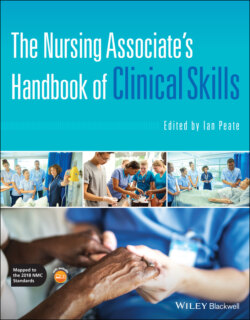Читать книгу The Nursing Associate's Handbook of Clinical Skills - Группа авторов - Страница 21
Supporting Evidence
ОглавлениеThe National Institute for Health and Care Excellence (2016) has provided guidance for health and social care professionals to enhance the transition between inpatient mental health settings and community or care home settings
https://www.nice.org.uk/guidance/ng53/resources/tailored‐resources‐4429245855/chapter/2‐Ensuring‐effective‐communication‐between‐teams‐and‐with‐people‐using‐services‐families‐and‐carers
Poor communication is often a feature in healthcare related events (Burgener 2017) with communication issues frequently featuring in National Health Service (NHS) complaints and medication related events. Within hospital and community health services, Ombudsman data identifies communication issues as one of the five most common complaint factors in cases which were fully or partially upheld in 2018–19 (Parliamentary and Health Service Ombudsman 2019).
In recent years, a number of serious failings in healthcare provision have made national news, for example, the Francis enquiry. This public enquiry reviewed reports on poor care in the Mid Staffordshire Foundation NHS Trust between 2005 and 2009, which was believed to have contributed to the avoidable death of many patients and highlighted communication failings in sharing information and concerns (Francis 2013).
Poor communication between healthcare professionals, poor communication with patients and limited communication between primary and secondary care have all been identified as factors which influence medication errors (World Health Organization 2016). Keers et al. (2013), in a systematic review of causes of medication administration errors in hospital, also identified inadequate written communication as a factor.
